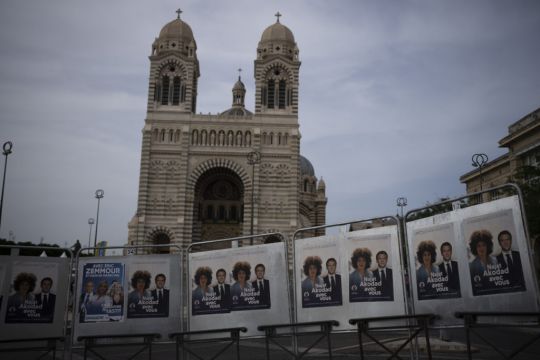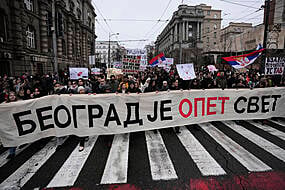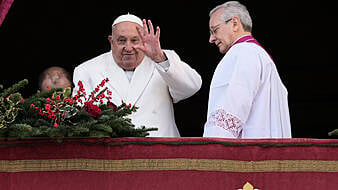French voters are going to the polls in the final round of key parliamentary elections that will demonstrate how much legroom President Emmanuel Macron’s party will be given to implement his ambitious domestic agenda.
In last week’s first vote, the left, under firebrand Jean-Luc Melenchon, made a surprisingly strong showing, sending jitters through Mr Macron’s allies.
They fear that a strong showing from Mr Melenchon’s coalition on Sunday could turn Mr Macron into a shackled second term leader, who spends his time bargaining with politicians and has major limits on his ability to rule.
Elections are being held nationwide to select the 577 members of the National Assembly, the most powerful branch of France’s parliament.

Though Mr Macron’s centrist alliance is projected to win the most seats, observers predict that it could fall short of maintaining his majority – the golden number of 289 seats.
In that case, a new coalition composed of the hard left, the Socialists and the Greens may be forged, which could make Mr Macron’s political manoeuvring more difficult since the lower house of parliament is key to voting in laws.
Mr Macron made a powerfully choreographed plea to voters earlier this week from the tarmac ahead of a trip to Romania and Ukraine, warning that an inconclusive election, or hung parliament, would put the nation in danger.
“In these troubled times, the choice you’ll make this Sunday is more crucial than ever,” he said on Tuesday, with the presidential plane waiting in the background ahead of a visit to French troops stationed near Ukraine. “Nothing would be worse than adding French disorder to the world’s disorder,” he said.
Following Mr Macron’s re-election in May, his centrist coalition has been aiming for a parliamentary majority that would enable the president to implement his campaign promises, which include tax cuts and raising France’s retirement age from 62 to 65.
There is still hope for his camp: polling agencies estimated that his centrists could ultimately win from 255 to more than 300 seats, while the leftist coalition led by Mr Melenchon could win more than 200 seats.
Yet many acknowledge a less than desirable outcome for Mr Macron’s party thus far.

Martin Quencez, political analyst at The German Marshall Fund of the United States, said: “The disappointment was clear on the night of the first round for the presidential party leaders. Clearly, they want to have a new momentum now on the way to the second round.”
If Mr Macron fails to get a majority, it will not simply affect France’s domestic politics – it could have ramifications across Europe. Analysts predict that the French leader will have to spend the rest of his term focusing more on his domestic agenda rather than his foreign policy, which could spell the end of President Macron the continental statesman.
If he loses his majority, “he would need to be more involved in domestic politics in the next five years than he was previously, so we could expect him to have less political capital to invest at the European level or international level… This may have an impact for European politics as a whole in European affairs,” Mr Quencez said.







